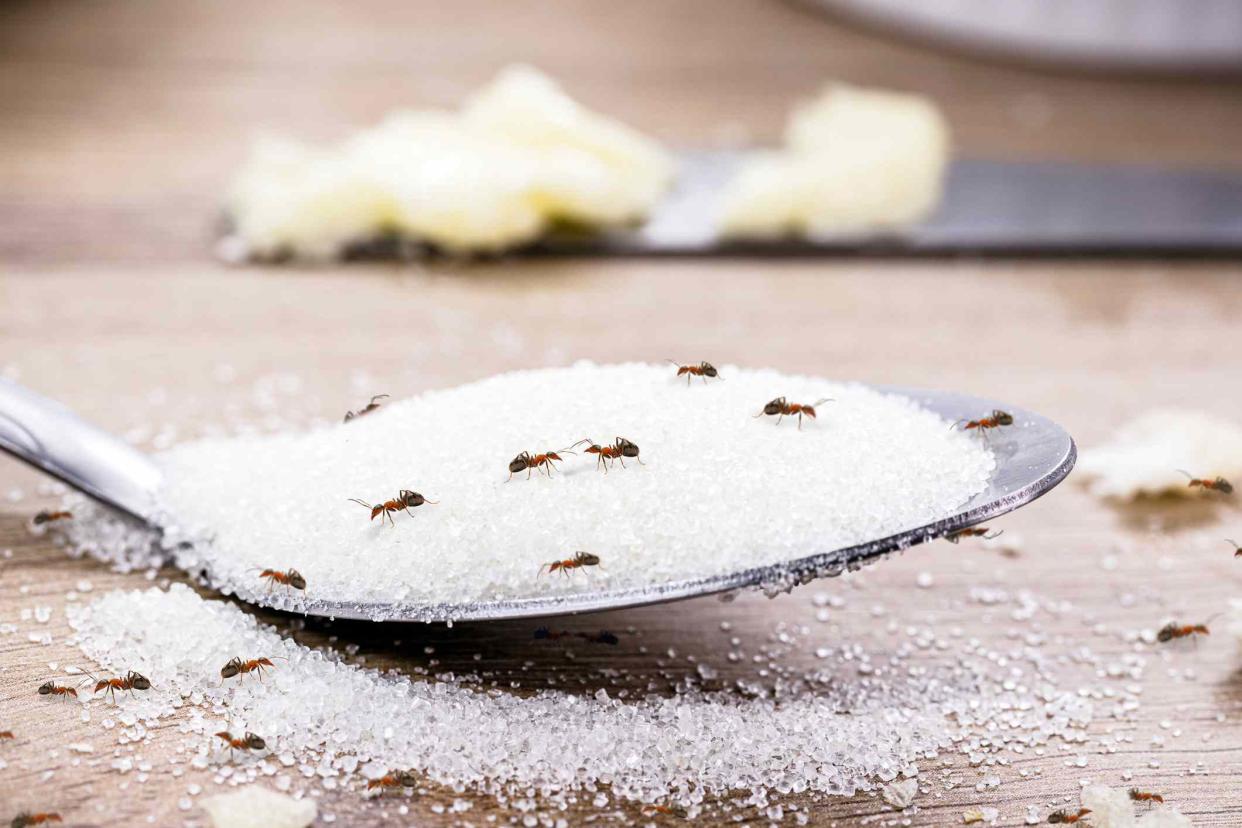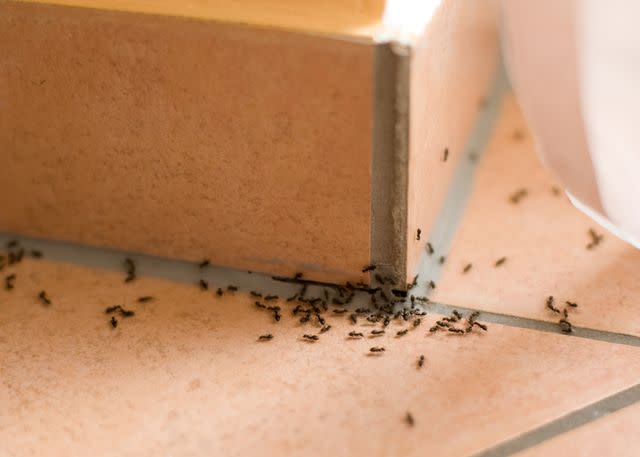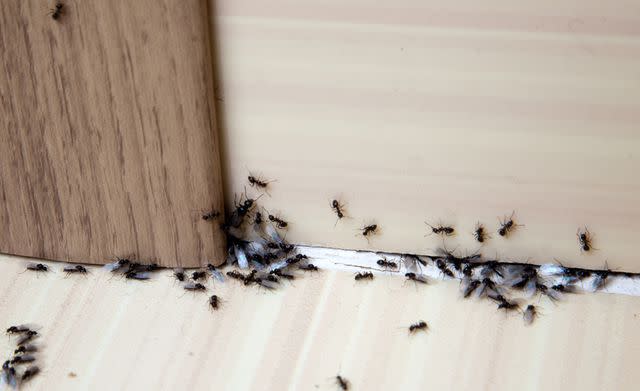Does Baking Soda Really Kill Ants? Experts Weigh In on How to Make It Effective

RHJ / Getty Images
Ants are a major—and common—household pest. They can suddenly appear in kitchens, dining rooms, and other areas of the home, growing in number each day. If you're trying to get rid of ants using ingredients you already have on hand, you may have heard about using baking soda to kill ants.
Is this low-cost, nontoxic ingredient the ant-exterminating solution the internet is making it out to be? We spoke with experts to find out, and the answer is: it depends. Here's what you need to know about whether baking soda kills ants.
Does Baking Soda Kill Ants?
Unfortunately, "baking soda is not the most effective remedy for ants," says Nicole Carpenter, president of Black Pest Prevention.
This is because in order for baking soda to actually kill ants, the ants have to eat it first. Once they do eat it, "baking soda reacts internally and generates carbon dioxide gas," says James Agardy, technical and training lead at Viking Pest Control.
But Agardy notes that baking soda alone won't be very appetizing. This is because ants prefer to eat sweet foods, rather than slightly-salty baking soda. However, the addition of an ingredient or two can turn baking soda into an ant-ridding remedy in a pinch.
Want more cleaning and organizing tips? Sign up for our free daily newsletter for the latest hacks, expert advice, and more!

DZM / Getty Images
How to Kill Ants With Baking Soda
Baking Soda With Powdered Sugar
When powdered sugar is added to baking soda, it becomes "more palatable and increases the chances of the ants accepting it," says Agardy. Here's how to combine the two for an ant-exterminating solution.
Combine one part baking soda with one part powdered sugar. You don't need much—a tablespoon or two of each will likely do.
Place the mixture in a shallow jar or lid, then set it up in the area where you've noticed ants.
The ants will be attracted to the powdered sugar, and they'll be unable to distinguish the baking soda mixed within.
Baking Soda With Boric Acid
For an even more potent ant-killing solution, add some boric acid to baking soda. Boric acid is highly toxic to ants, and it can be added to a baking soda solution to make it more powerful. But keep in mind that boric acid is mildly toxic to humans and other animals, so keep it away from pets and kids.
Mix equal parts boric acid, baking soda, and powdered sugar. You'll still need the sweetness of powdered sugar to attract the ants.
Pour this powdery solution into a shallow bowl or small plate, then place it wherever you see ants.
Replace the baits after a week or two, and keep them out until you no longer see any more ants.
Scattering Baking Soda
If you're looking to keep ants out of outdoor areas like patios or decks, consider sprinkling one of the two mixtures mentioned above. But keep in mind that this can get a little messy!
Combine baking soda, powdered sugar, and boric acid (optional) according to the instructions above. You'll need at least a half-cup of the mixture total.
Sprinkle the baking soda mixture around picnic tables, outdoor dining areas, or other ant hotspots.
Re-sprinkle and replace after rain or heavy wind.

Cherkas / Getty Images
How to Keep Ants Away Naturally
If baking soda seems to be doing little to stop your ant problem, don't fret. "There are more effective methods for killing or even deterring ants," says Carpenter, "such as the use of food-grade diatomaceous earth, which is easy to use and environmentally friendly."
Diatomaceous earth can be sprinkled around doorways and windows, and it will harm ants as they step through it.
Carpenter notes that talcum powder (baby powder) has a similar effect to diatomaceous earth, and can be used in the same way. Another all-natural way to kill ants is by using boiling water—a large pot of boiling water can be slowly poured atop an ant mount to get rid of the ants within. Just make sure to stand back!
When to Call A Professional
If baking soda, boric acid, diatomaceous earth, or boiling water still aren't making a dent in your ant problem, it may be time to bring in the big guns: the pest control professional. If you're concerned about the use of toxic chemicals in your home, Garrett Thrasher, co-owner & general manager at Thrasher Termite & Pest Control of So. Cal, says to "tell the pest pro that you want an environmentally friendly solution, ask what products they intend to use, and then read the product's Safety Data Sheet."
Read the original article on The Spruce.

